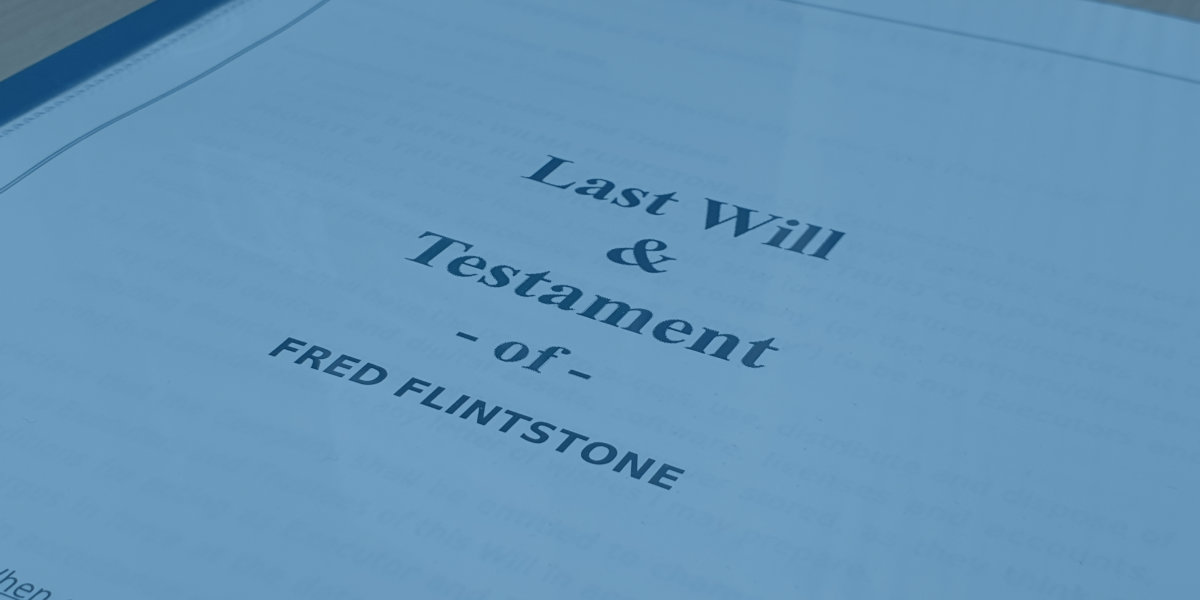It is important as will writers to know when a will is revoked. This may not always when the testator intends the will to be revoked and some care does need to be taken to ensure that actions are not taken which will accidentally revoke a will. The following article details the different ways that a will can be revoked.
Marriage/Civil Partnership
As a general rule, a marriage or formation of a civil partnership revokes any will that a testator made before the marriage or civil partnership under S18 and S18B Wills Act 1837 respectively. There are however some exceptions to this rule.
If it appears from the will that at the time the will was made the testator was expecting to be married to, or form a civil partnership, with a particular person and the testator intended that the will should not be revoked by that marriage or civil partnership, the will would not be revoked.
It is currently unclear whether a will can be written to be in anticipation of either a marriage or civil partnership to a particular person, i.e. for a couple who wish to formalise their relationship but currently have not decided on the exact form. Neither The Marriage (Same Sex Couples) Act 2013 nor The Civil Partnership (Opposite-Sex Couples) Regulations 2019 included provisions relating to this and there has not yet been case law to clarify the situation.
The conversion of a civil partnership to a marriage does not revoke a will.
A void marriage (one that is unlawful or invalid for example if one party was already married) does not revoke a will.
The dissolution or annulment of a marriage or dissolution of a civil partnership does not revoke a Will. It will only cause any appointments of the former spouse/civil partner or gifts to them to fail as if the former spouse/civil partner had died at the date that the marriage or civil partnership was dissolved.
Another Will or Codicil
Under S20 Wills Act 1837, the whole or any part of a will can be revoked by another will or codicil.
This will normally take effect by including a revocation clause in the will revoking all previous wills. A testator may have a will dealing with foreign property that they do not wish to be revoked, in such a case the revocation clause can be restricted so that their foreign wills are not revoked.
In a rare case that a will does not contain a revocation clause, the later will or codicil impliedly revokes provisions in the will that are inconsistent with the terms of the latter document. The provisions in the former document that are not inconsistent with the latter document would still stand.
Writing
S20 Wills Act 1837 also allows for the whole or any part of a will to be revoked by some writing declaring an intention to revoke that is executed in the same manner as a will.
Destruction
The final method of revoking a will provided by S20 of the Wills Act 1937 is that a will can be revoked by:
- the burning, tearing, or otherwise destroying the will;
- by the testator or by another person in their presence and by their direction;
- with the intention of revoking the will.
All of the above must be present. If one is not proven, the will would still stand. For example, the accidental destruction of a will by the testator is not enough to revoke the will, as there would be no intention to revoke the will present.
The destruction should be full. Only destroying part of the will has the risk that the parts not destroyed could still stand. Writing on the will or crossing out words may not be sufficient to revoke it.
It is preferable for a testator to revoke his will by some form of writing to ensure that there is proof of the revocation.
If a will is missing at death, and the last known location of the will was in the testator’s possession, a presumption would arise that the testator has destroyed the will with the intention of revoking it. Please see our previous newsletter below for more details on this.


 © Trust Wills & Probate Limited t/a WillPack. All rights reserved.
© Trust Wills & Probate Limited t/a WillPack. All rights reserved.
You must be logged in to post a comment.